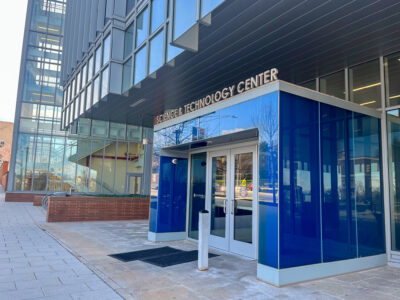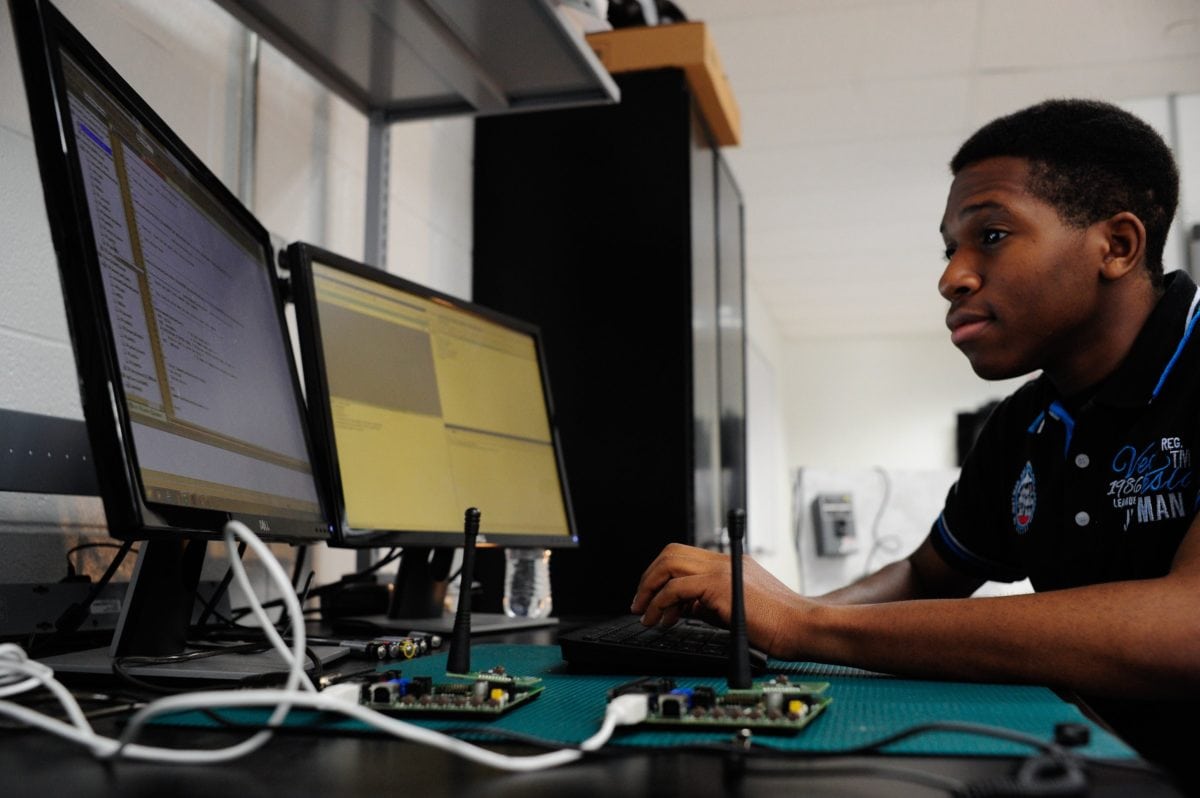Baltimore area schools will be involved in a new pilot program that’s looking to create an engineering course for high school students across the country.
The effort, called Engineering For US All, said it received a $4 million grant from the National Science Foundation this week. The aim is to develop and test a standardized engineering course, with an eye toward creating a path for high schools students to earn college credit.
University of Maryland College Park is leading the pilot, with Dean Darryl J. Pines of the A. James Clark School of Engineering serving as principal investigator.
UMD will lead a nationwide pre-college course on engineering principles and design. The program, entitled Engineering For US All (E4USA), is the first of its kind. Learn more: https://t.co/AnyehEahIA #UMDdiscovers pic.twitter.com/GjGrUMa2s0
— Maryland Engineering (@ClarkSchool) October 1, 2018
Northeast Baltimore’s Morgan State University is one of the members of the group, with Morgan professor of electrical and computer engineering Jumoke Ladeji-Osias and the school of engineering serving as collaborators on curriculum, rubric and teacher training.
Arizona State University and Virginia Tech are also in the group. Vanderbilt University is serving as an evaluator, and Greenbelt-based NASA Goddard Space Flight Center is helping to spread information.
During the program, researchers will refine a curriculum developed by the American Society for Engineering Education (ASEE) and the College Board, which also includes a student design project. It builds on work over five years from an ASEE committee.
According to Morgan State, 15 high schools in Maryland – including five in the Baltimore area – are expected to participate in the 2019-20 school year. In all, about 1,400 students from 40 high schools are expected to participate, according to NSF. For the pilot, the researchers want to reach a diverse set of students.
“Every student should have access to a high-quality pre-college curriculum that teaches engineering principles and practices while incorporating design-based experiences,” Pines said in a statement. “The skills learned in engineering classrooms enable students from demographically and geographically diverse schools to not only become better prepared for the academic challenges within science, technology, engineering, and math (STEM) courses, but to become better prepared for life.”
Along with developing the course, a key part of the effort will be a professional development program to guide teachers as they instruct students and evaluate the design projects. The program will also have a web-based platform allowing teachers to provide feedback, share lessons and track results with researchers.
Join the conversation!
Find news, events, jobs and people who share your interests on Technical.ly's open community Slack

Baltimore daily roundup: Real estate deal in the Peninsula; Missing $100M nitrile glove factory; Dirt bike clampdown

Baltimore daily roundup: Gen AI's software dev skills; UpSurge Tech Ecosystem Report; MD service year program

Baltimore daily roundup: Mayoral candidates talk tech and biz; a guide to greentech vocabulary; a Dutch delegation's visit


